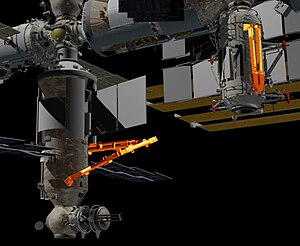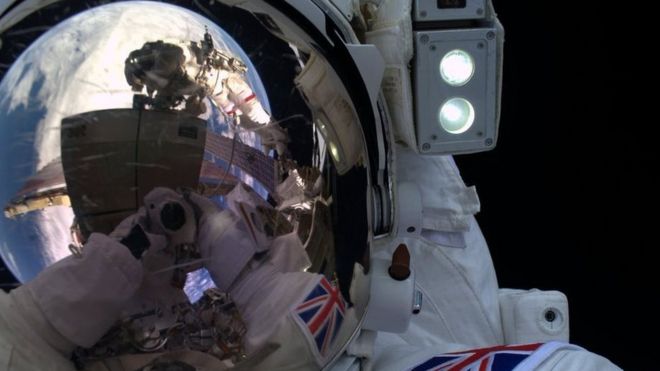No wonder British astronauts waited decades for their first space walk.
I think you'll find it's because Britain used to be against manned spaceflight, preferring unmanned and robotic spacecraft instead, and therefore didn't provide funding for British astronauts. All previous British astronauts therefore had to take US citizenship to go up into space with Nasa.
However, that has now changed, and the UK space industry is booming and sending its own astronauts up into space with Esa.
Today, space is one of the UK’s biggest success stories. The UK space industry adds £7 billion to the economy, supports 70,000 jobs, is growing four times faster than the rest of the UK economy, has the most highly skilled workforce in manufacturing, and enjoys 7% of the global space market – a market forecast to be worth £543 billion by 2020.

Guildford-based Surrey Satellite Technology has pioneered small space vehicles
Britain’s space industry has more than doubled its turnover over the past decade to £11.8bn a year and is “punching above its weight” in the international marketplace.
Companies involved in the sector manufacturing satellites, providing communications, broadcasting services and finding practical applications for data produced from space vehicles have combined delivered an average annual growth rate of 8.8pc turnover since 2000.
Britain’s space companies have11.2pc of the operations market for space vehicles, and 10.3pc of the applications market for the services and data provided by satellites.
Space is a global competitive market that has consistently posted growth rates faster than the Chinese economy. London remains the place to go to finance your satellite business. Britain’s long-held lead in communications satellites makes Britain the most commercial space sector in Europe. City money and UK technology is a winning combination. The British take space from the laboratory to the marketplace quicker than anyone else in the world.
The Government has announced plans to make the UK the European hub for commercial space flight and space technologies, with investments in space flight and microgravity research that will give an £11.8 billion boost to the economy.

Business Secretary Sajid Javid said: "For decades mankind has dreamt of space travel and the final frontier, and from today the UK will trigger the next scientific and innovation revolution to turn science fiction into science fact.
"Not only are we celebrating the launch of the first UK Government-backed astronaut, but our first ever space policy will build on the inspiration he provides to grow our burgeoning space industry.
"Historically we haven't been a major player in space programmes, this policy will change that."

By the way, Britain's first spacewalk was in 1995, when Lincolnshire-born Michael Foale did one. However, he had dual British-American citizenship and was working with Nasa, so is not considered an actual British astronaut. No Canadian did a spacewalk into Chris Hadfield in 2001.
Last edited:










